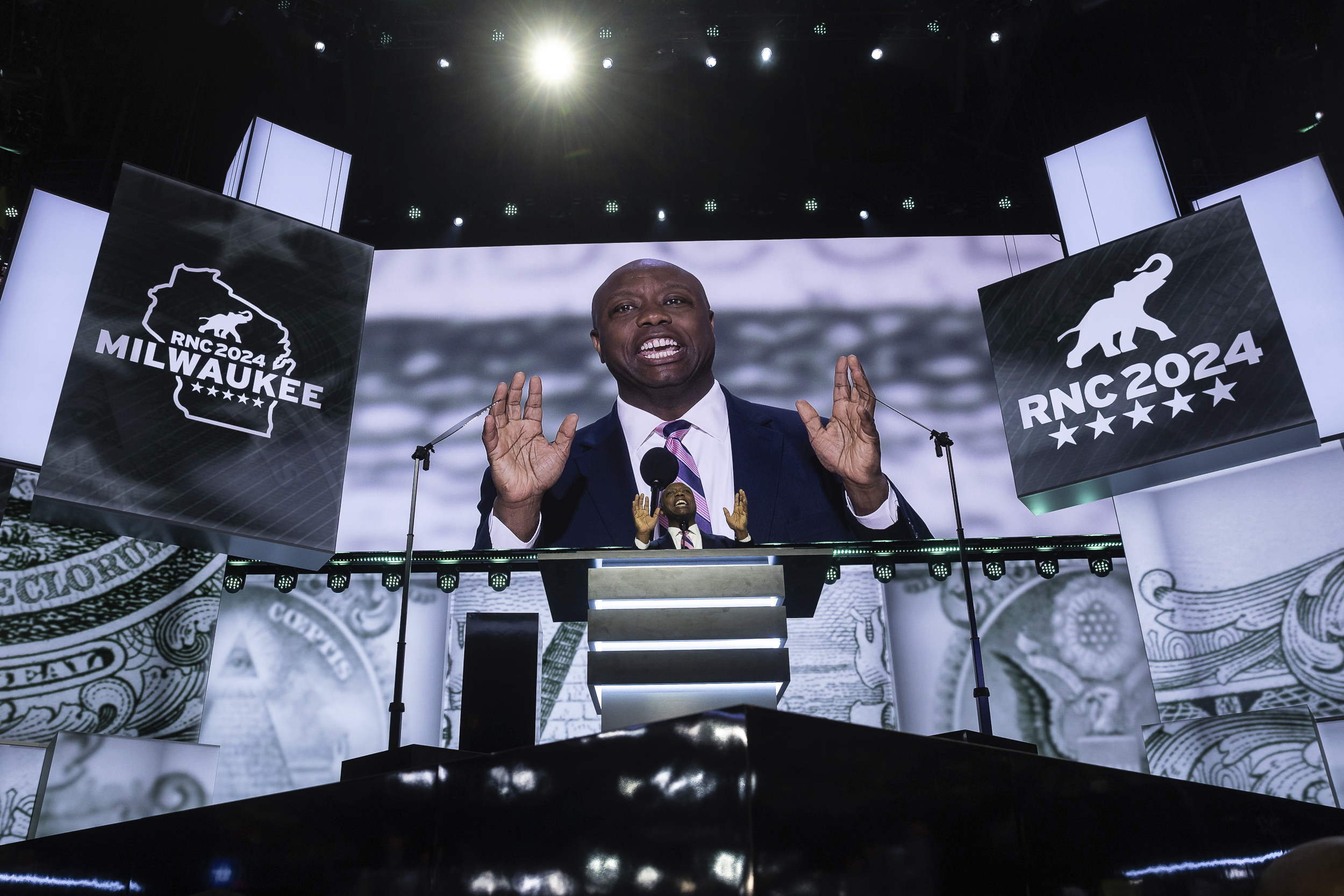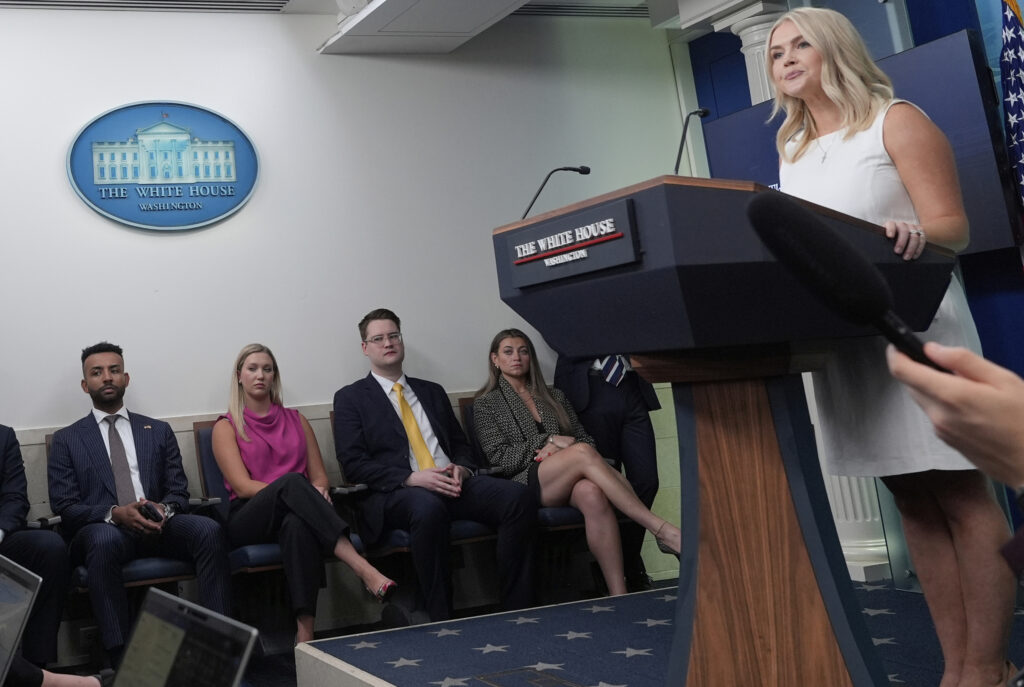President Donald Trump made major gains with Black voters in 2024. But Black conservative operatives are warning that Republicans shouldn’t take those voters for granted in the midterms — and fall into the same trap they say has tripped up Democrats.
While most Black voters still support Democrats, Black conservatives argue their community has a strong opportunity in 2026 to build off Trump’s momentum and redefine what conservatism means for an increasingly disgruntled generation of Black voters.
But the effort from the party to lock in the Trump-era gains has not yet materialized.
“Republicans have no desire to pander to the Black community, but do I think they could be doing a little bit better of pandering? For sure,” said Harrison Fields, who was a surrogate on the Trump campaign and recently left the White House.
That means following Trump’s 2024 campaign example, he added, and heading into predominantly Black areas like the Bronx, Chicago and other Black Democratic strongholds.
“I think showing up is going to be something that matters, and not just showing up at election time,” he said, referring to a common critique Democrats face in their attempts to reach Black voters. “We have a lot of good opportunities to just show up now.”
In 2024, Trump won 15 percent of Black voters — according to Pew Research’s widely cited validated voter survey — an increase from the 8 percent he won four years earlier. A pre-election Pew poll found that the economy and health care were the most important issues for the voting bloc, ahead of racial and ethnic inequality as the third most important issue.
Fields argued that the party should zero in on the generational divide in the Black community, suggesting Republicans could have better luck with a younger cohort of voters who haven’t regularly voted Democratic their whole lives.
“Black voters have been conservative their entire lives,” said Fields, who recently joined Republican lobbying and public affairs firm CGCN. “But if you’re told that the system is stacked against you and one party is the only party that can fix the system and somehow level the playing field or really upend the playing field, you weaponize an emotional trigger for Black voters that allows them to be blind to their core values.”
Fields acknowledged that Democrats have long been able to capitalize on older Black voters’ concerns around racial equity and justice, but it was Trump’s messaging on the economy that resonated with younger Black voters in 2024.
In a pre-election survey of young voters of color across battleground states, conducted by Democratic pollster Hart Research, 61 percent of young Black voters identified the economy as their top issue heading into November 2024.
“I think so many people in the Democratic Party think that the 1965 movement is the same thing that can bring people to the party,” said Fields. “While you have a lot of Black Americans that are still harping on issues in the past, many of them have not been afflicted by racism for segregation or the true injustices that our great grandparents were part of.”
But even with the growing generational divide, the Republican Party has long struggled to court and retain Black voters, the consultants said, instead focusing on a white working class base.
“From a historical lens, the approach from the GOP was ‘the Black community is going to go out and vote for Democrats at an alarming rate and we don’t really have a chance, so let’s not even go out there,’” said Quenton Jordan, vice president of the Black Conservative Federation.
But Trump changed that in 2020, Jordan argued, when the president began trying to swing Black voters to his side — something then-candidate Trump made more explicit four years later.
Camilla Moore, chair of the Georgia Black Republican Council, said focusing on young Black men under 45 will be important for Republicans in the midterms because the party’s traditional values often resonate with the demographic.
“Young Black men like the whole idea of feeling manly,” Moore said. “They like the idea of being independent, and they like the idea of being entrepreneurs and controlling their future.”
Republicans, she added, need to emphasize the importance of a traditional two-parent household on the campaign trail and highlight what policies they’ll enact to support Black entrepreneurship.
There are, however, already warning signs for Republicans that Trump’s gains with Black voters won’t be permanent.
In a September poll from Fox News, 77 percent of Black voters said they disapprove of the job Trump is doing as president, and a poll tracker from Decision Desk has Trump’s approval rating among Black Americans hovering at around 70 percent.
Still, Fields said, the numbers don’t mean Black voters will swing back for Democrats next November. And if he had a choice, he said, he’d rather Black voters stay home than vote for the other party.
“We need more points on the board than the other side, and if staying on the couch, not showing up is the best we can do right now — then that’s a win,” said Fields.
Democrats have largely dismissed Republicans’ bravado around Black voters, noting both Trump’s slipping poll numbers and the fact that most Black voters cast their ballots for Democrats.
But even as Trump’s support weakens with Black Americans in recent polls, Democrats can’t assume Black voters will automatically come back to the party, said Democratic strategist Antjuan Seawright.
“We cannot make assumptions about any constituency, in particular, younger Black voters,” said Seawright, who consulted on Hillary Clinton’s 2008 and 2016 campaigns and serves as a senior adviser to the Democratic National Committee.
“Just because folks think that Trump is not doing a good job or not doing the job at all, doesn’t mean that they are squarely sold on the fact that Democrats can do the job,” Seawright added. “There’s still some trust we have to strengthen.”
The same is true for Republicans, the GOP consultants said. If Republicans are serious about capitalizing on the momentum Trump built, they have to start speaking to Black voters now, the Black Conservative Federation’s Jordan said.
And, he added, Trump must stay involved.
“Whether you like him or not, Donald Trump draws attention,” said Jordan. “If we want to see a surge, then the president will have to be just as energized for the midterm elections as he was during his own presidential election.”
Beyond Trump, Fields said, the Republican Party hasn’t put forth a strong messenger who can credibly reach Black voters — though that doesn’t mean the party doesn’t have options. Fields pointed to South Carolina Sen. Tim Scott and Reps. Wesley Hunt (Texas) and Byron Donalds (Fla.) — and even himself — as possible surrogates.

Some of the GOP’s rising stars are their Black members of Congress. Scott took the helm of Senate Republicans’ campaign arm for the midterms — a high-profile role that keeps him in the national spotlight and connects him with deep-pocketed donors, both beneficial should he run for president again.
Two other members are running for governor in 2026: Donalds, who is running with Trump’s blessing in the president’s adopted home state, and Rep. John James (R-Mich.) in his battleground state. Hunt is also weighing joining the messy Senate primary in Texas.
But Seawright, the Democratic strategist, was doubtful that the five Black Republicans currently serving in Congress would be enough to pull Black voters away from the Democratic Party or serve as a proxy for Trump’s appeal — even while acknowledging Democrats have a lot of work to do.
“I don’t think any of those people can go into any traditional Black space and advocate with their agenda and be successful,” said Seawright. “But I do think there’s something to be said about people who just feel disconnected from the process and don’t feel like there’s connective tissue to any party, and they find themselves vulnerable.”
Read the full article here
